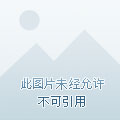Supported by the Central Propaganda Department (Information Office of the State Council) "Record China" communication project, guided by the Propaganda Department of the State Administration of Radio, Film and Television, and jointly produced by Hunan Satellite TV, Mango TV and Beijing Bojing Culture, the second season of the large-scale historical and cultural documentary "China" is currently being broadcast every Monday to Thursday at 19:30, Mango TV members are the first to watch, enjoy the HDR experience, and the documentary "China" book of the same name published by Shanghai People's Publishing House and Xuelin Publishing House has also been listed at the same time. The sixth episode of "Monsoon", which airs today, tells the story of the prosperous publishing industry of the Ming Dynasty, seeing how China's cultural traditions continue to persist in perseverance, and how China gradually opens a window to the world.

Diverse and coexistence of cultural monsoons
At the beginning of the Ming Dynasty, Xu Yikui, a professor at Hangzhou Province, received an important task - to compile the Hangzhou Fu Zhi. In order to complete the task, he decided to go out of the study hall and go deep into the folk to carefully observe and record the city. At that time, Hangzhou's commerce was developed, and there were many textile workshops, and the weavers in the workshops were happy although they were bitter. Therefore, based on what he saw and heard in the life of the weaver, he wrote the famous "Weaver Pair". This interview records the development of the silk weaving industry in the Ming Dynasty, and also preserves a unique sample for the commercial society, so that future generations can truly feel the vivid historical picture.
The new wind of the development of the textile industry may reveal the early buds of capitalism, which made the eyes of ancient Chinese intellectuals no longer only stay at the height of the temple, but also began to reach the rivers and lakes. Xu Yikui has always actively linked with reality, observed the changes in the world in the city, and has not given up the writing and expression of individuals, so that the cultural map of the ming dynasty's pluralistic coexistence can be passed on with the help of his words and ideas.
A vast geographical adventure
In 1413, a young man named Ma Huan ushered in the first voyage to sea, and led the fleet was Zheng He, an official eunuch in the imperial court. Zheng He, full of ambition, with the curiosity of the entire Chinese nation about the world, and his fleet began the fourth magnificent voyage. Zheng He's fleet was filled with Chinese porcelain, silk, tea and other supplies in exchange for spices, dyes, jewelry and other products abundant in the West. Ma Huan, the translator, suddenly had an idea, he wanted to record this rare adventure.
Zheng He's seven voyages to the West are undoubtedly a feat of the times. But there are few records in the official archives of the Ming Dynasty, and Zheng He himself has not written about it. Ma Huan compiled the observations and feelings on the way to the sea into "Yingya Victory", which allowed Chinese to see the vast and boundless world. The prologue to the age of global navigation was written by Ma Huan, allowing China and the world to tie up the bond of interconnection.
Among the many speakers, Xu Xiake is particularly unique, at the age of 22, he left his hometown to measure the magnificent mountains and rivers under his feet with actions, and at the same time, from the perspective of geology and geography, he wrote a Chinese version of the "Book of the Earth" - "Xu Xiake's Travels" with his life's time, recording the great era blown by this monsoon for future generations.
The scientific monsoon of the West and the East
In the middle of the Ming Dynasty, the Western missionary Matteo Ricci came to China with his deep belief in religion and profound knowledge, studied Confucian classics, visited Chinese celebrities to spread the teachings, and also met his confidant Xu Guangqi. When Xu Guangqi first saw the "Map of Mountains and Seas", his heart was extremely shocked, his geographical understanding of the world was rewritten, and the new knowledge brought by Matteo Ricci, like a surging wave, impacted his curiosity and curiosity.
Matteo Ricci brought not only geographical knowledge, but also advanced natural sciences in the West. Xu Guangqi suddenly realized that the real world was so different from what he had known in the past, and he began to shift his gaze to "practical learning" as a hope for national salvation. He not only co-translated the mathematical work "Geometric Origins" with Matteo Ricci, but also presided over the compilation of famous classics such as the "Complete Book of Agricultural Politics" and the "Chongzhen Almanac", which opened the precedent of "learning from the West to the East" in the late Ming Dynasty.
At the end of the Ming Dynasty, commercial publications were unprecedentedly prosperous, and anecdotal engravings became popular, and a number of scientific works that were comparable to the world, such as Li Shizhen's "Compendium of Materia Medica", Song Yingxing's "Heavenly Works and Open Things", Wu Yousheng's "Theory of Plague", Pan Jitao's "River Defense -- Overview", and Tu Benyi's "Minzhonghai Faults" were published one after another. With the help of commercial publishing methods, the most outstanding achievements of the Ming Dynasty have been preserved and disseminated, and China has left a strong imprint on the history of world science and technology.
The seventh episode of the second season of the documentary "China", "The Emperor", will be broadcast simultaneously on Mango TV and Hunan Satellite TV on March 9, and this episode will tell the story of Kangxi's capture of Aobai, Ping San Francisco, Harvest taiwan, Conquest of Junggar and other great achievements, reproducing the great glory of the emperor throughout the ages, so stay tuned!